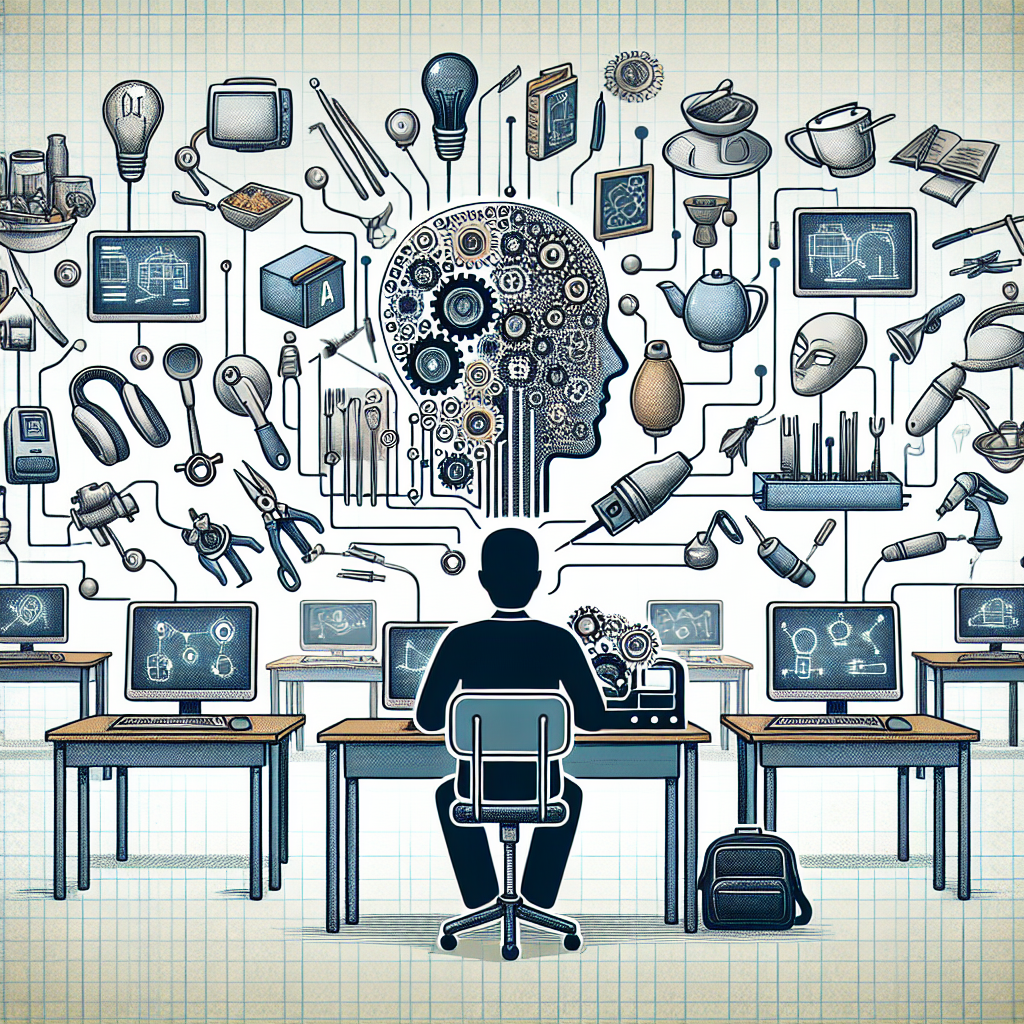Artificial Intelligence (AI) is rapidly transforming the way we live, work, and learn. In the field of education, AI has the potential to revolutionize the way vocational education is delivered and prepare students for the workforce of the future. Vocational education, also known as career and technical education, focuses on providing students with the skills and knowledge needed to succeed in specific industries or occupations.
AI technologies such as machine learning, natural language processing, and robotics are being integrated into vocational education programs to enhance learning experiences, improve outcomes, and better prepare students for the demands of the workforce. By leveraging AI, educators can personalize learning, provide real-time feedback, and offer immersive learning experiences that simulate real-world work environments.
One of the key benefits of AI in vocational education is its ability to adapt to the individual learning needs of students. Through the use of adaptive learning technologies, AI can analyze student performance data and tailor instruction to meet each student’s unique learning style and pace. This personalized approach to learning can help students stay engaged, motivated, and on track to mastering the skills needed for their chosen career path.
AI-powered assessment tools are also transforming the way student progress is measured in vocational education programs. Traditional assessments such as exams and quizzes are being replaced by AI-driven assessments that can evaluate a student’s skills, knowledge, and competencies in real time. These assessments provide educators with valuable insights into student performance and allow them to identify areas where additional support or intervention may be needed.
In addition to personalized learning and assessment, AI is also being used to create immersive learning experiences that simulate real-world work environments. Virtual reality (VR) and augmented reality (AR) technologies are being integrated into vocational education programs to provide students with hands-on training in a safe and controlled environment. These immersive experiences allow students to practice and refine their skills in a realistic setting, preparing them for the challenges they will face in the workforce.
AI-powered chatbots and virtual assistants are also being used to support students in vocational education programs. These virtual assistants can answer student questions, provide feedback on assignments, and offer guidance on career pathways. By leveraging AI-powered support tools, educators can free up more time to focus on providing personalized instruction and support to students.
Despite the many benefits of AI in vocational education, there are also challenges and concerns that need to be addressed. One of the main concerns is the potential for AI to replace human educators and diminish the role of teachers in the classroom. While AI can enhance teaching and learning experiences, it is important to remember that human educators play a critical role in providing emotional support, mentorship, and guidance to students.
Another concern is the potential for bias and discrimination in AI algorithms. If AI technologies are not designed and implemented carefully, they can perpetuate existing biases and inequalities in the education system. Educators and policymakers must work together to ensure that AI technologies are used ethically and transparently to promote equity and inclusion in vocational education.
In conclusion, AI has the potential to revolutionize vocational education and prepare students for the workforce of the future. By leveraging AI technologies such as adaptive learning, immersive experiences, and virtual assistants, educators can provide personalized instruction, assess student progress in real time, and offer hands-on training in a simulated work environment. While there are challenges and concerns that need to be addressed, the benefits of AI in vocational education far outweigh the risks. By embracing AI, educators can better equip students with the skills and knowledge needed to succeed in an ever-changing and competitive workforce.
FAQs:
Q: How can AI be integrated into vocational education programs?
A: AI can be integrated into vocational education programs through the use of adaptive learning technologies, AI-driven assessments, immersive experiences, and virtual assistants.
Q: What are the benefits of AI in vocational education?
A: The benefits of AI in vocational education include personalized learning, real-time assessment, immersive experiences, and virtual support tools that can enhance student engagement and preparation for the workforce.
Q: What are the challenges of using AI in vocational education?
A: Challenges of using AI in vocational education include concerns about the potential for bias and discrimination in AI algorithms, as well as the risk of AI replacing human educators in the classroom.
Q: How can educators ensure that AI technologies are used ethically and transparently in vocational education?
A: Educators can ensure that AI technologies are used ethically and transparently by working with policymakers to establish guidelines and regulations for the use of AI in education, as well as promoting equity and inclusion in the implementation of AI technologies.

